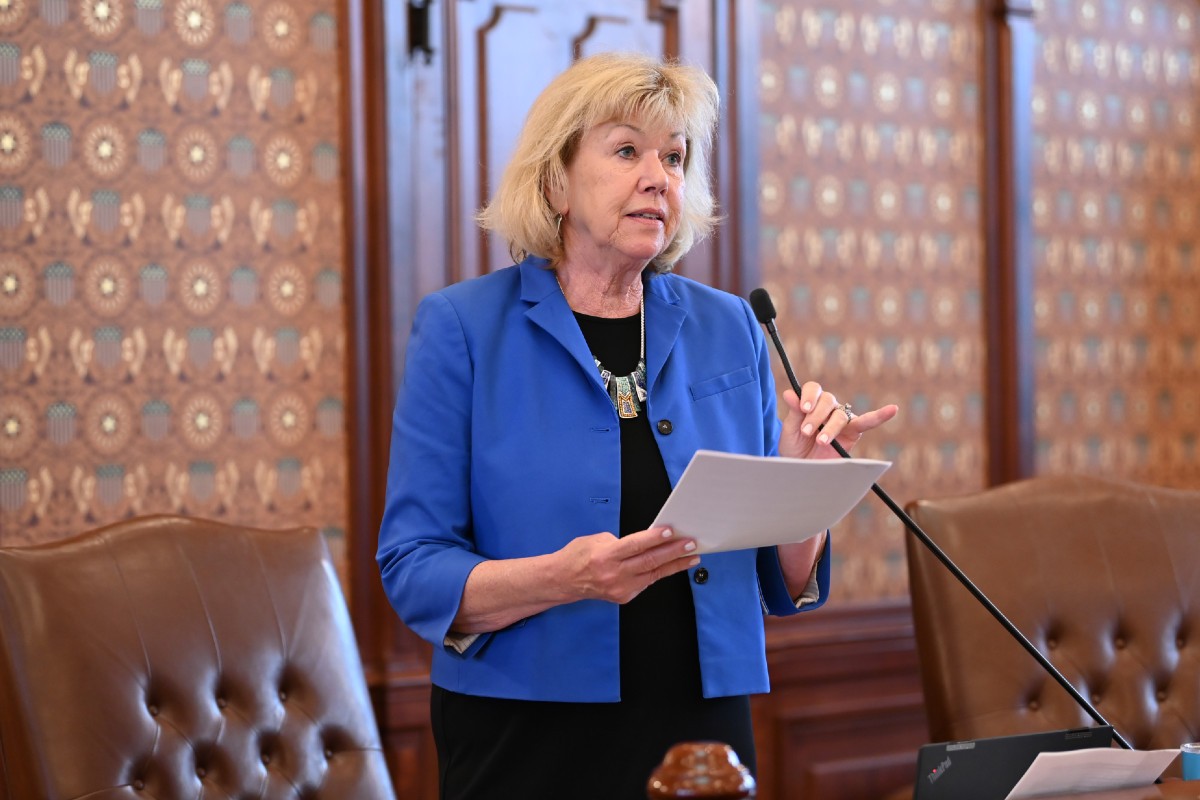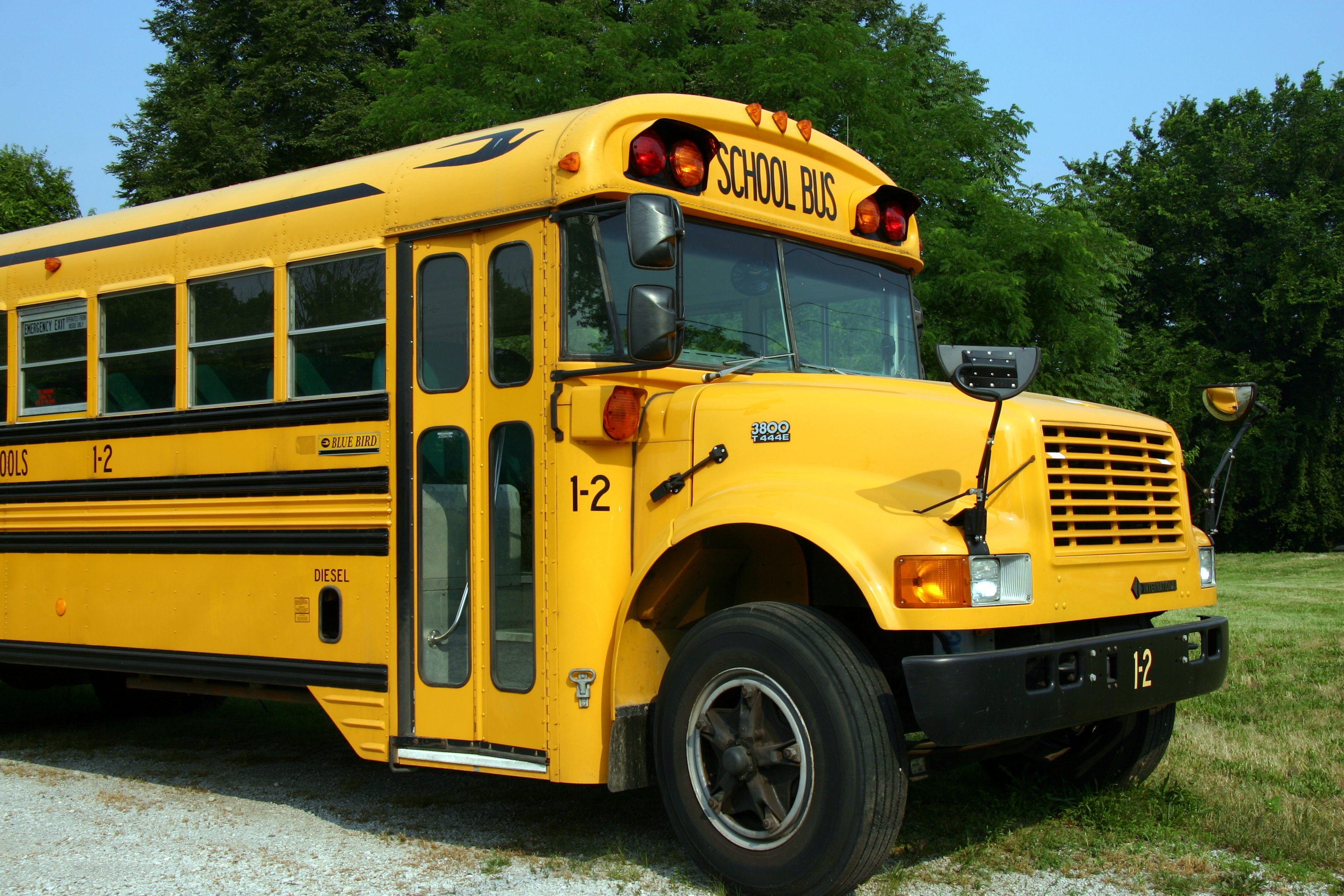- Details
- Category: Latest News
 SPRINGFIELD — A new law championed by State Senator Julie Morrison will eliminate the use of toxic “forever chemicals” in everyday items like cosmetics, dental floss and children’s products, marking a significant step toward keeping harmful substances out of people’s homes and bodies.
SPRINGFIELD — A new law championed by State Senator Julie Morrison will eliminate the use of toxic “forever chemicals” in everyday items like cosmetics, dental floss and children’s products, marking a significant step toward keeping harmful substances out of people’s homes and bodies.
“We all deserve peace of mind that the products we use regularly aren’t putting our health at risk,” said Morrison (D-Lake Forest). “This law prioritizes the well-being of future generations by making sure our shelves are stocked with safer alternatives in the years ahead.”
Forever chemicals, also known as PFAS or per- and polyfluoroalkyl substances, are a type of synthetic chemicals designed for oil- and water-resistant purposes. Once released into the environment or absorbed by our body, PFAS do not break down easily and can accumulate over time. Studies have linked PFAS exposure to serious health issues including cancer, hormone disruption, immune system damage and developmental problems in children.
- Details
- Category: Latest News
 SPRINGFIELD — Thousands of human trafficking victims have been identified in Illinois in recent years, but authorities estimate the true number of victims to be much higher. To improve how the state handles trafficking cases, a new law sponsored by State Senator Julie Morrison will lead to earlier identification and strengthen support for survivors through better coordination, training and services.
SPRINGFIELD — Thousands of human trafficking victims have been identified in Illinois in recent years, but authorities estimate the true number of victims to be much higher. To improve how the state handles trafficking cases, a new law sponsored by State Senator Julie Morrison will lead to earlier identification and strengthen support for survivors through better coordination, training and services.
“This law is the result of extensive work among Illinois State Police, state agencies and legislators to close gaps that exist in current processes,” said Morrison (D-Lake Forest). “By breaking down silos between agencies, we can connect survivors to compassionate support faster and make it more difficult for trafficking networks to operate in the state.”
The new law takes a victim-centered, trauma-informed approach to addressing human trafficking. The law builds on recommendations from the Joint Human Trafficking Working Group — created in 2023 with input from over 60 stakeholders and state agencies — and lays out a statewide strategic plan to support trafficking survivors. This includes creating standards of care for medical and legal providers and building a network of accessible services.
- Details
- Category: Latest News
 SPRINGFIELD — With the rise in digital communication among children, threats from online predators have become more frequent and sophisticated. To help law enforcement respond faster and more effectively, State Senator Julie Morrison’s new law expands the authority of Illinois State Police (ISP) to investigate and stop online child exploitation.
SPRINGFIELD — With the rise in digital communication among children, threats from online predators have become more frequent and sophisticated. To help law enforcement respond faster and more effectively, State Senator Julie Morrison’s new law expands the authority of Illinois State Police (ISP) to investigate and stop online child exploitation.
“Law enforcement should have every tool available to track down those who try to harm children,” said Morrison (D-Lake Forest). “This new law ensures Illinois State Police can work seamlessly with other agencies to pursue online predators, no matter where they’re located.”
The new law grants ISP’s Division of Criminal Investigation broader jurisdiction to pursue online child exploitation cases and work alongside local task forces across the state. It will usher in improved response times, close jurisdictional gaps and strengthen coordination between agencies working to protect children from digital threats. The measure is modeled off of Alicia’s Law, a national initiative that empowers specialized law enforcement units to track and prosecute predators who target children online.
- Details
- Category: Latest News
 SPRINGFIELD — To better protect children during their daily commutes to school, State Senator Julie Morrison passed a new law requiring seat belts in all newly purchased school buses beginning in 2031 — a move that aligns Illinois with national safety trends and growing efforts to keep students safe on the road.
SPRINGFIELD — To better protect children during their daily commutes to school, State Senator Julie Morrison passed a new law requiring seat belts in all newly purchased school buses beginning in 2031 — a move that aligns Illinois with national safety trends and growing efforts to keep students safe on the road.
“Many bus manufacturers are already moving toward including seat belts as a standard feature,” said Morrison (D-Lake Forest). “This law makes sure Illinois is keeping pace with national safety recommendations and placing students’ well-being at the center of our decisions.”
Under the new law, all school buses purchased or leased after July 1, 2031 and registered in Illinois will be required to have three-point seat belts on all seats. Currently, drivers and passengers ages 8 and older are required to wear seat belts in passenger vehicles, but there is no requirement for using safety belts on buses.
More Articles …
- State commission to strengthen public health preparedness established under Morrison law
- Morrison law makes it easier for veterans, military families to access food benefits
- Morrison highlights $25 million in available pre-apprenticeship program grants
- Morrison announces grant to support learning gardens at Lake Forest History Center
Page 2 of 97





